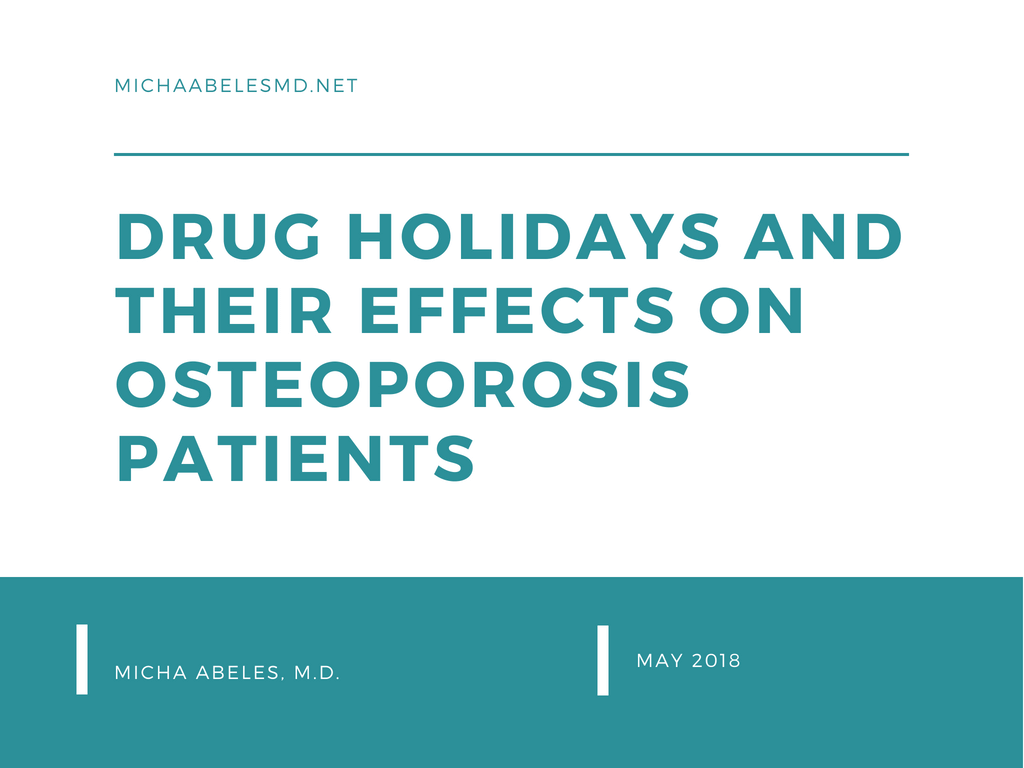Researchers are confirming “drug holidays” require closer follow-up and attention, especially in patients at high risk of fracturing. Patients who take osteoporosis drugs for years at a time are typically advised to take a “drug holiday” or temporarily discontinue taking the drugs to minimize the likelihood of dangerous side effects. These side effects generally target the jaw and thighs, having been linked to osteonecrosis of the jaw and atypical femur fracture.
Drug holidays are often taken due to unwanted side effects from the medicine prescribed, or to reduce a long-term risk that comes with the medication, as is the case with osteoporosis and bisphosphonates.
A recent study from Loyola Medicine found that 15.4 percent of patients taking drug holidays from osteoporosis drugs (most commonly prescribed are bisphosphonates) had a bone fracture throughout the six-year follow-up period. Yearly occurrences ranged from 3.7 to 9.9 percent, with most fractures happening during the fourth or fifth year. The most common sites where patients experienced fractures were wrist, foot, ribs, and spine, though foot fractures are not considered osteoporotic fractures as of the writing of this post.
Patients who experienced fractures were also found to be older and had lower bone mineral density from the beginning of the study.
This is not to say that patients should refrain from taking a “drug holiday.” In fact, the American Association of Clinical Endocrinologists and the American College of Endocrinology both recommend that women with moderate risk for osteoporosis do take a drug holiday under the supervision of their physicians. The authors of the study realize there are still many unknowns about “drug holidays” and will require further research. This particular study focused on further characterizing the increased fracture risk in patients on drug holidays, rather than the merits or potential harm in the practice.
For the moment, though, researchers can conclude that patients who are already at high risk for fracture require close attention throughout their drug holiday. Fracture risk will only increase as time goes on, and thus patients should be assessed regularly to determine their safety.
If interested in reading their full report, this study is titled “Osteoporotic Fractures During Bisphosphonate Drug Holiday, and is available to view on the AACE Journals website.
Additionally, please consult your doctor if you or a loved one are contemplating taking a drug holiday in order to ensure that doing so is the best option for your treatment plan.
